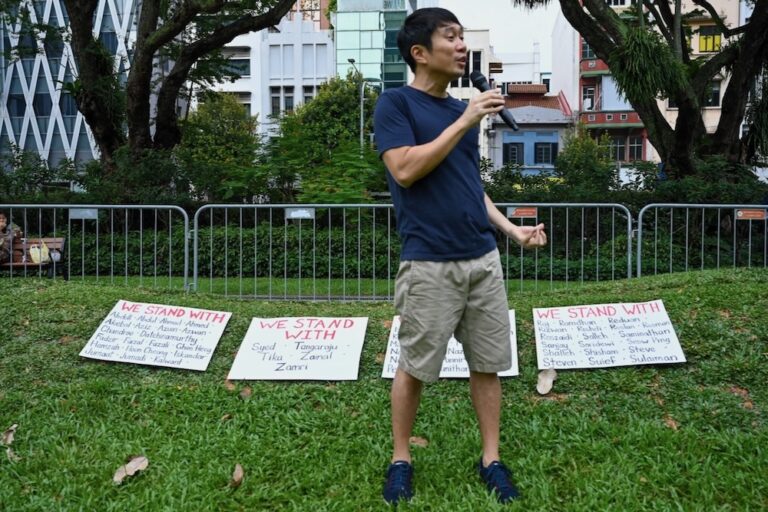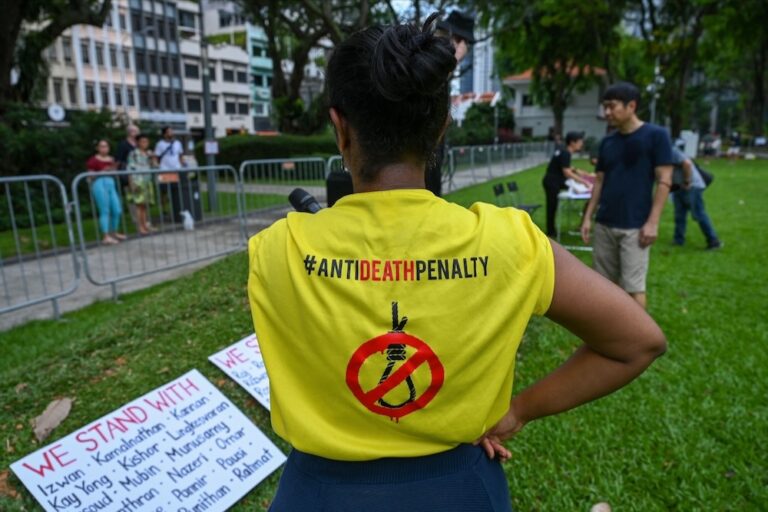(SEAPA/IFEX) – A Singaporean filmmaker has been forced to surrender his video camera and tapes to police, reports coming out of the city-state say. Documentary producer and director Martyn See told Agence France-Presse (AFP) that he turned over the equipment and six existing tapes of “Singapore Rebel”, a documentary about Singapore opposition figure Chee Soon […]
(SEAPA/IFEX) – A Singaporean filmmaker has been forced to surrender his video camera and tapes to police, reports coming out of the city-state say.
Documentary producer and director Martyn See told Agence France-Presse (AFP) that he turned over the equipment and six existing tapes of “Singapore Rebel”, a documentary about Singapore opposition figure Chee Soon Juan, to police investigators on 29 August 2005.
“Singapore Rebel” was ordered pulled from a Singaporean film festival last March after state officials deemed the film too political. The work documents the travails of Chee, Singapore’s most vocal opposition figure who himself was sued for defamation and is now facing bankruptcy hearings for speeches he made while campaigning for a parliamentary post in 2001. In the course of his campaign, Chee was accused of defaming Singapore’s founder, Lee Kuan Yew, and former leader Goh Chok Tong.
The Singapore Democratic Party’s secretary-general, Chee has so far been unable to pay the 500,000 Singapore dollar-penalty (approx. US$297,300) ordered against him, and bankruptcy proceedings – which would ban him from political involvement for years – are currently pending.
See’s film on Chee has been screened at two human rights festivals in the United States and New Zealand, AFP noted, but remains banned in Singapore.
Despite its affluence, the city-state is notorious for one of the most restrictive media environments in Southeast Asia. All mass media in the city-state are under the influence of the government, and the nation’s leaders have routinely sued critics, journalists, and even international media giants to discourage any criticism of the government or its leaders.
Singapore also regularly bans movies, ostensibly in the interest of maintaining ethnic and religious harmony in the country of 4 million.
Singapore’s Films Act bans political advertising using films or videos, as well as movies directed towards any political end such as promoting political parties.
“I have no idea when [the equipment and tapes] will return or even if they will return at all,” See told AFP. “They just said they need the camera and tapes to investigate my case.”
If convicted of violating the Films Act, See could be jailed for up to two years or fined up to 100,000 Singapore dollars (approx. US$59,500).


